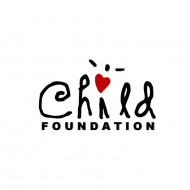What is Crohn’s Disease and Ulcerative Colitis?
Children with Inflammatory Bowel Diseases (I.B.D.) such as Ulcerative Colitis, and the more serious Crohn’s Disease, suffer unpredictable inflammation and ulceration causing excruciating pain, bloody diarrhea, nausea, vomiting, weight loss or gain, chronic fatigue, and anemia. Children suffering from these disorders are often confined to their homes, miss an inordinate amount of school time, can not participate in sports, often will not venture too far from a bathroom and will be too timid to mention their discomfort to peers or even close friends. Crohn’s Disease and Ulcerative Colitis are internal and not contagious, and as such there are not always outwardly visible signs of a handicap. Children can be stricken in their first year of life to adulthood and the pain never ends; they will become adults with the same problems and frequent surgeries.
What is Biliary Atresia?
Biliary Atresia is the most common liver disease in children for which liver transplants are necessary. The Pediatric Gastroenterology team at BC Children’s Hospital is the Canadian Co-ordinating Centre for Biliary Atresia. Research for liver disorders is done in the laboratory we built at BC Children’s Hospital and this unit has played a key role in creating the Canadian Pediatric Hepatitis Research Group. Thanks to matching funds generously granted by the CH.I.L.D. Foundation, the Canadian Biliary Artesia Registry will be established in Canada. The development of a national Biliary Atresia Registry governed by both pediatric surgeons and hepatologists would be one of the first of its kind in the world.


